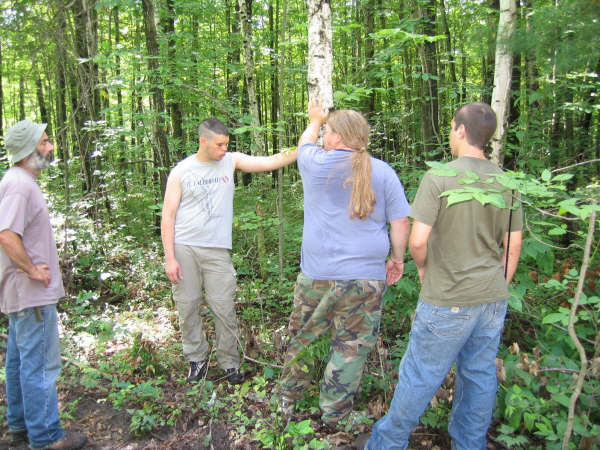As I mentioned in an earlier post, top-bar beehives seem like a great fit for backyard beekeepers. On February 3rd, my brother, dad, and I had the opportunity to learn about Kenyan top-bar beekeeping from Jessica Steller from Steller Apiaries, in Jackson, MI.
Jessica and Keith Steller have been practicing alternative beekeeping for seven years. Their focus is on sustainable beekeeping – keeping bees as pollinators in natural hives which are medication free. They specialize in removing and safely relocating “pest” colonies that have established themselves in buildings. They also produce the best honey I’ve ever tasted! It’s raw, unfiltered honey with the pollen included!

